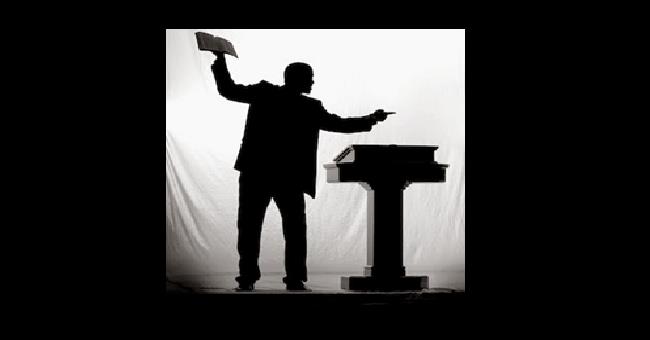by Mike Roberts, Church Historian
Over the nearly 200 years of our church’s existence, the ministers who have served us have delivered something close to 10,000 sermons. These discourses served a number of purposes but sadly, very few of those multitudes of messages have been preserved. If available, they would yield a great deal of insight into the development of Universalist theology and philosophy, and the paths taken to get us to where we are today.
Several ministers do leave a taste of their thinking. One of those is Reverend A. B. Beresford who was one of the longest serving pastors in the church’s history, holding the pulpit from 1909 to 1920. He was frequently quoted in the Cincinnati Post and the Enquirer. Below are samples of his thoughts that reflected on the state of the times during which he served.
From the Cincinnati Post of December 7, 1911: “Rev. A. B. Beresford has figured out that if Adam had lived 6,696 years and had worked 366 days every year and had received $300 for each year’s work, he would not be as rich as Andrew Carnegie, who is worth a half-billion dollars.” This fact indicated to Rev. Beresford that there was something wrong with the present social order, for no man, he says, could by mere brain and muscle amass the amount of wealth held by Carnegie. He ascribes Carnegie’s wealth to special privilege.
Rev. Beresford lectured to his congregation at the First Universalist Church, taking as his subject, “Carnegie and His Wealth.” He called Carnegie the last of the titans, who lifted mountains, directed the energy of hosts upon hosts, and sought (by endowments for special purposes) to control the destinies of millions of men yet unborn.
Commenting on Carnegie’s declaration that a man who dies rich is disgraced, Rev. Beresford declared that if that were true, Carnegie would die a most disgraceful death, for; with all his efforts, he was not able to give away even his income. Carnegie, he said, was not solving the problem of wealth by giving his money away. The great problem, declared Beresford, was not the charitable or philanthropic use of wealth, but the honest getting of wealth. The central problem of our way was to build an industrial order that shall give fair opportunity to every willing worker and then insure him a just share of the results of his toil.”
After the sinking of the Titanic, owner of the White Star Line, J. Bruce Ismay, proclaimed that the great tragedy was an act of God. He was roundly criticized and Reverend Beresford joined in. “The collision was not an act of God. It was traceable to human frailty and greed, to misplaced judgment, to the eager speed-mad rush of the times that made possible the operation of the Titanic through the ice fields at high speed. The commander of that ship was under orders to ‘make time’, and he made time. The world knows the result. But God did not ordain it.”
Reverend Beresford found himself in November of 1914 trying to explain why rental property owned by the church was being let to six women who were “registered” by the police. The property was in a district where people “registered” were not allowed to reside. The headline of the story from the Post was “Church Finds Its Rents Are Vice Profits.” Reverend Beresford proclaimed that, “Such a situation as women of that kind living in that house cannot be tolerated. I shall demand that they be made to move. I won’t stand for it a minute.”
The famed evangelist, Billy Sunday, offered a camp meeting in Cincinnati and the news media asked Reverend Beresford to assess Sunday’s performance. “It (was) a part of Sunday’s campaign not only to accomplish what good he thinks he can, but for business reasons of his own to appear that the world is given over to the management and control of fiends and devils. This is absolutely a libel upon the American cities and American life. Some people like to go to the circus and others like to hear Billy Sunday.”
The year 1915 saw the heightening of warfare in Europe and much of Beresford’s attention was aimed at that conflict. Early in the war he stated “Each German felt himself as good as six Frenchmen; each Russian felt himself the equal of six Germans. Englishmen consider themselves superior—and so it goes. It is this self-righteousness, despising others that brought on war.”
In a December 1916 sermon, Beresford proclaimed, “The war will be fought to a finish; there will be no armed armistice, no draw, but conclusive victory. There is now so much at stake that neither side can afford any other result. How long will it continue? Even the angels of heaven themselves do not know.”
In January 1917 Beresford stated, “The war has opened the mightiest school the sun has ever shone upon; in the school whose rooms are trenches, battle fields, munitions factories, parliaments, congresses, and Reichstags is the teacher at his task. The soldier pupil is learning and low wages in Europe will never again be. The era of the pauper wage has vanished—man’s work and man’s pay— this will rule the earth. American competition will be on another and higher plane—more intelligent mechanics receiving higher wages.”
From a May 1917 Mother’s Day sermon, Beresford stated, “All things we call good, from mother’s love to America’s part in the world struggle, are the fruit of unselfishness.”
Following the end of war, Beresford was asked about forgiving soldiers who received dishonorable discharges from the military. His response, “The reputation of every man given even a summary court-martial suffers in civilian life, in my estimation. A man who doesn’t attend to his duties and obey the regulations in the army is either incorrigible or lacks capacity, and will do no better in civil life. Of course, I realize there is a great difference between a jail and a guardhouse, and that there were many injustices perpetrated in the army.” It should be noted that both of Beresford’s sons served in the army and one was wounded in France, which may have had an effect on his position regarding the question.
Beresford completed his pastorate with our church in 1920 and returned to his home town of Detroit. He served another 10 years there before returning to Cincinnati to finish his ministerial career in the Presbyterian Church.
Image source: https://tinyurl.com/yc6ejna9

